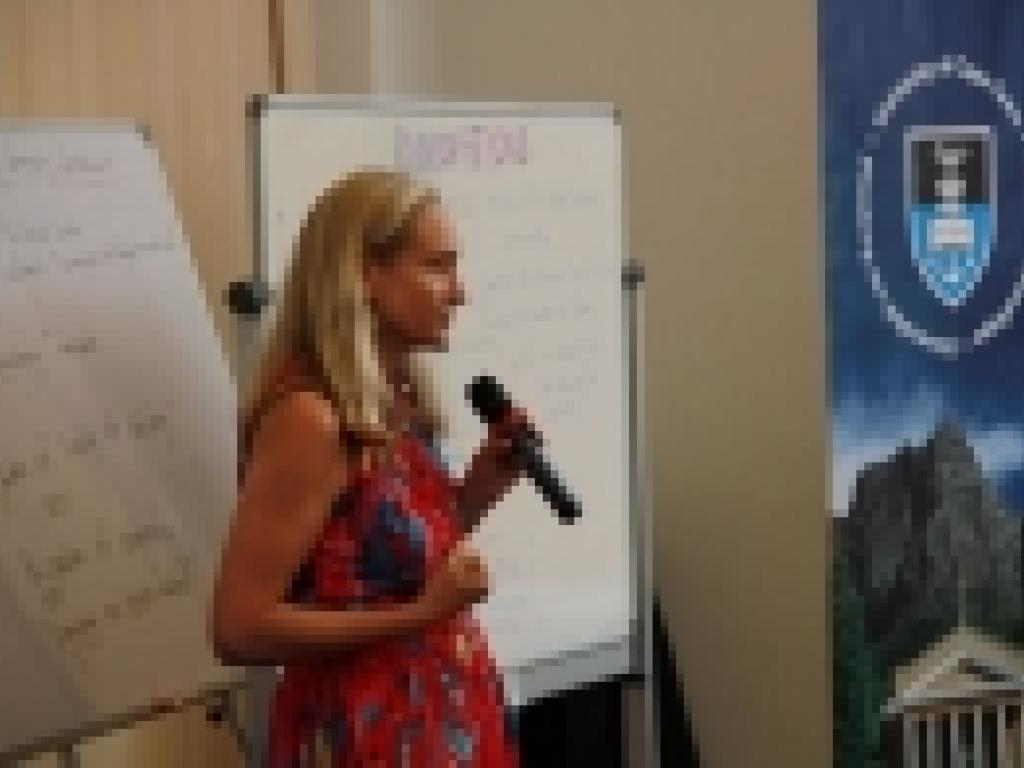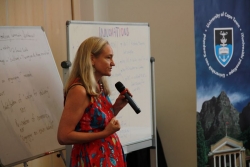Innovations in Public Employment Programmes


There was lively debate on tough issues throughout the course and participants were appreciative of the calibre and dedication of their colleagues.
Deputy Minister of Public Works, Jeremy Cronin, spoke on the scope for public employment programmes to contribute to transformative development, raising thought provoking issues, especially around the structural nature of unemployment in South Africa. If we are to address this problem he said: "our PEP initiatives cannot just be temporary placeholders [and] gap-fillers, they need to be integrated into a long-range, systemic [and] transformational response."
Presentations on innovative approaches to public employment programmes in India and Ethiopia were highlights of the week. Mr Berhanu Washie, Director of the Ethiopian Productive Safety Nets Programme, highlighted innovative approaches to securing water resources in a country often beset by drought, while Mr Dinesh Jain, Joint Secretary of the Indian Ministry of Rural Development , explained the Mahatma Gandhi National Rural Employment Guarantee Act (MGNREGA).
The Act guarantees rural people 100 days of work per annum, on demand, enabling them to plan and slowly develop their livelihoods to the point where they are no longer dependent on the programme. So far this programme has benefited in excess of 66 million people. The programme is absolutely transparent, with all details, including all expenses and payments, catalogued on their website - open to everyone.
The course drew participants from Malawi, Zambia, Namibia and all corners of South Africa. A number of national government departments such as Public Works and Social Development sent strong delegations and the demand both before and after the course has ensured that another course will be run next year.
